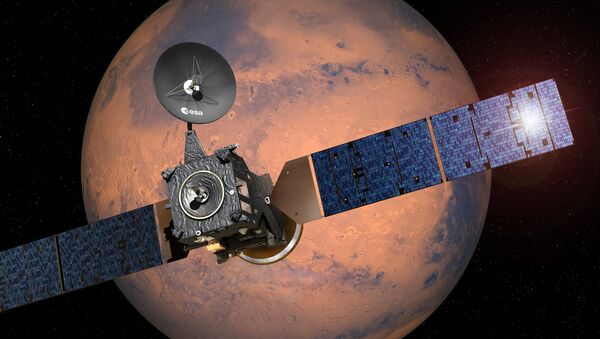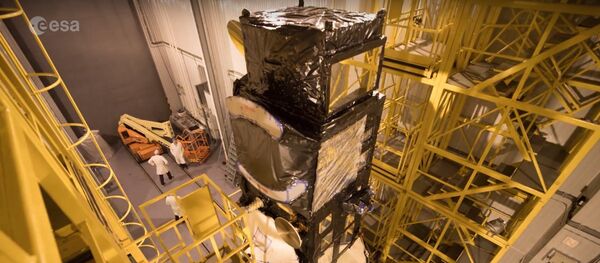MOSCOW (Sputnik) — Russia and France are also planning to sign a new cooperation agreement for the Bion biosatellite program, National Centre for Space Studies (CNES) President Jean-Yves Le Gall said Monday.
"I don't agree with the judgment that our relations have changed. We've got an intensive cooperation program, and at the moment, we are reaping the benefits of our mutual work on the Soyuz [rocket] launches from Guiana Space Center [in France]. We have already performed 15 launches from there, and everything [went] fine. There is a prospective of launches of satellites of the European navigation system Galileo from there," he told journalists.
Soyuz ST is a version of the Soyuz-2 rocket adapted for launches from Kourou. Due to its location near the equator, the Kourou launch site gives the Soyuz greater thrust to put larger payloads into orbit.
"We are ready to sign an agreement on space science and research regarding microgravity. We are talking about Bion program [agreement] which we intend to sign in the coming weeks," Le Gall said.
Bion-M biosatellites are designed for conducting research in space biomedicine and biotechnology, the results of which are returned to Earth in order to improve the system of long-term manned missions planning.
The previous Russian biosatellite Bion-M1 took a monthly spaceflight in spring 2013, with a series of experiments conducted on board. The satellite contained about 100 different living organisms, in particular, Mongolian gerbils, mice, geckos, fish, freshwater crustaceans and algae.



